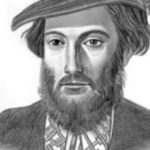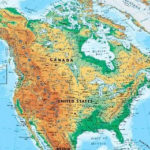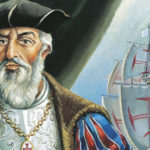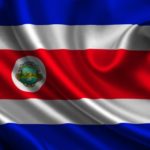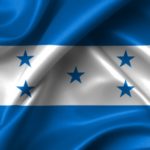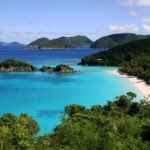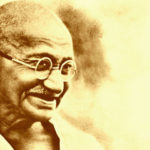Interesting facts about Christopher Columbus
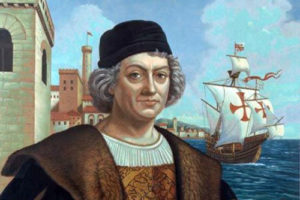 The famous seafarer and discoverer Christopher Columbus is the man from whom the era of the Great Discoveries began. Being really obsessed with the idea of finding a short trip to India, he devoted his whole life to this cause, but he did not succeed.
The famous seafarer and discoverer Christopher Columbus is the man from whom the era of the Great Discoveries began. Being really obsessed with the idea of finding a short trip to India, he devoted his whole life to this cause, but he did not succeed.
Christopher Columbus forever went down in history as a traveler, intending to get to India, and together it overcame the Atlantic and opened the American continent. Note that even in the Middle Ages in North America, vikings landed, but they were not known about their discovery anywhere except Scandinavia.
Honor to be called the small homeland of Columbus is contested by six Italian and Spanish cities.
The name of the discoverer in the precise transliteration from the Spanish language sounds like Cristobal Colon, but in the Slavic languages another pronunciation was fixed.
For several decades, Columbus invited the leading European monarchs to organize an expedition, which was planned to reach the shores of India in a western way, but all the kings and queens refused to finance this enterprise for various reasons.
The Queen of Castile, Isabella agreed to help Columbus, as she hoped that his discovery would help bring back the Holy Sepulcher from Palestine to Christians – it was believed that the seafarer would go around the Earth and moored off the coast of India.
When the Columbus expedition opened one of the Bahamas, the travelers found themselves close to China, India or Japan. The local natives seafarer took samples of a mysterious herb, now known as tobacco.
Mooring to the shore in the bay to the north-east of Cuba, Columbus was disappointed, not finding any spice, no precious metals, or other wealth. He suggested that he was on some peninsula in East Asia, and decided to keep his course on Japan, considered a richer country.
Opening Cuba, Haiti and Tortuga, Columbia’s flotilla returned to Europe with a load of unusual plants, fruits, bird feathers and natives, who were called Indians.
During the second expedition, Columbus founded the city of Santa Domingo, discovered a mass of islands, laid the optimal course for the West Indies, and at this time the massacre of the Indians began on the new possessions of the Spanish crown. At the same time, the pioneer was sure that he colonized and mapped the western part of India.
It was Columbus who suggested that Spanish monarchs populate new territories not by free citizens, but by convicted criminals, while halving their prison term.
In 1498, the Portuguese traveler Vasco da Gama opened the sea route to genuine India. Delivering a load of spices to Europe, he proved that Columbus had discovered quite different lands, and, therefore, is a deceiver, albeit involuntarily.
During the fourth voyage of Columbus, who was still hoping to find a way to authentic India, was separated from the Pacific only 65 kilometers, but he did not know about it. Instead of a path to spices, he opened the coast of Central America.
Returning from the fourth expedition, the seriously ill Columbus died in Seville, where he was buried without any special honors. Europeans of that time knew almost nothing about the navigator – the importance of his travels was recognized only half a century later, when from the conquered Mexico and Peru to Spain began to arrive ships with precious metals.
The fate of the remains of Columbus remains unknown – at the behest of the navigator he was reburied in Haiti, but after the expulsion from the island of the Spaniards, his ashes were transported to Cuba, to Havana. Then the political situation changed again, and the remains returned to Santa Domingo, and then to Seville. However, a recent study of remains from the Seville Cathedral showed that the bones stored there belonged to a thin 45-year-old man, and Columbus at the time of death was a strong sailor 55-60 years old. Perhaps the original remains of the discoverer were lost during numerous crossings.
